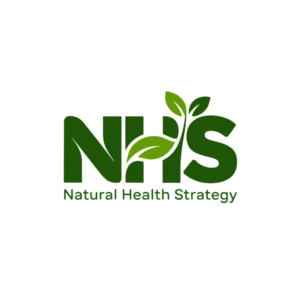Nettle seed for kidneys has been used for centuries as a natural remedy to support and improve kidney function. Rich in essential nutrients, these seeds help cleanse the kidneys, enhance filtration, and may even assist in managing chronic kidney disease (CKD).
When the kidneys are under stress, toxins can accumulate in the body. Nettle seed works to detoxify the system and promote overall kidney health. Its powerful properties make it a valuable tool for protecting and restoring kidney function.
How Kidneys Work and Why Their Health Is Essential
Kidneys are essential for filtering toxins, balancing fluids, and regulating blood pressure. When they don’t function properly, waste builds up in the body, leading to serious health problems.
Good kidney health ensures your body stays balanced and free from harmful substances. Poor kidney function can lead to:
- Fatigue – as toxins accumulate, energy levels drop.
- Swelling – fluid retention can cause puffiness in the legs, ankles, or face.
- Chronic kidney disease (CKD) – untreated kidney issues can progress to serious, long-term conditions.
That’s why taking steps to support your kidneys is so important, and natural remedies like nettle seed for kidneys can be an effective way to boost their health.
Your kidneys filter over 200 liters of blood every day, efficiently removing toxins and excess fluids from your body. Keeping them healthy with natural remedies like nettle seed can enhance their vital function and support overall health.
What Are Nettle Seeds?
Nettle seeds come from the stinging nettle plant (Urtica dioica), known for its rich medicinal properties. Historically, people have used nettle seeds in traditional herbal medicine to boost energy, stamina, and organ function, particularly for supporting the kidneys.
For centuries, various cultures have valued nettle seeds. Ancient healers used them to support kidney health, boost vitality, and aid recovery from illness. They also believed these seeds helped the body adapt to stress and enhance endurance.
Nutritional Profile of Nettle Seeds
Nettle seeds are tiny but incredibly nutrient-dense, making them a potent addition to any health regimen, especially for kidney support. Here’s what makes them so powerful:
- Essential fatty acids – support cell function and overall organ health.
- Minerals – such as iron, magnesium, and calcium, which are crucial for bodily functions.
- Vitamins – including vitamin C and A, known for boosting the immune system and reducing inflammation.
- Antioxidants – protect cells from damage and assist in detoxification.
With such a powerful nutritional profile, nettle seeds are especially beneficial for supporting kidney health and overall wellness.
How Nettle Seeds Support Kidney Function
People highly value nettle seed for kidneys because it enhances kidney function and promotes detoxification. These seeds help the body flush out toxins and improve overall kidney performance, making them an excellent natural remedy.
Detoxification and Kidney Cleansing Properties
Nettle seeds support the kidneys by enhancing their natural detoxification processes. They assist in clearing out waste, toxins, and excess fluids, preventing build-up that can lead to kidney damage. This natural cleansing effect helps keep the kidneys functioning optimally.
Improving Kidney Filtration
People believe that nettle seeds improve kidney filtration, helping the kidneys efficiently remove waste from the blood. This not only helps reduce toxin levels in the body but also improves overall kidney efficiency.
Nettle Seed for Chronic Kidney Disease (CKD) Management
For those dealing with chronic kidney disease (CKD), nettle seeds may offer support. Some herbalists suggest that nettle seeds can help slow the progression of kidney damage by supporting better filtration and reducing inflammation.
Reducing Inflammation in the Kidneys
Nettle seeds contain anti-inflammatory properties that help reduce inflammation in the kidneys. By lowering inflammation, they help protect kidney tissues from further damage, which is especially important in conditions like CKD.
Supporting Adrenal Health
Healthy adrenal function plays a key role in maintaining kidney health. Nettle seeds help nourish and balance the adrenal glands, which indirectly supports kidney function and overall hormonal balance.
Scientific Research on Nettle Seed for Kidney Health
Recent scientific research supports the use of nettle seed for kidneys, focusing on its diuretic, anti-inflammatory, and antioxidant properties. Studies have shown that nettle seed can help enhance kidney filtration, reduce inflammation, and detoxify the kidneys by aiding in the removal of metabolic waste and toxins. This action may help alleviate stress on the kidneys, which is especially beneficial for people dealing with conditions like chronic kidney disease (CKD).
Animal studies have highlighted nettle’s ability to protect against kidney damage, including damage caused by nephrotoxic substances like gentamicin. In these studies, nettle extract reduced levels of blood urea nitrogen (BUN) and serum creatinine—markers of kidney stress—and demonstrated almost normal kidney tissue in affected animals(Kidney Coach)
The anti-inflammatory action of nettle, which lowers key inflammatory cytokines, further contributes to protecting kidney tissues from ongoing damage, potentially slowing the progression of CKD(Kidney Coach).
However, while these findings are promising, it’s important to consult a healthcare professional before using nettle seed as a kidney support supplement, especially for those with pre-existing kidney conditions.
Nettle Seed vs. Other Herbal Remedies for Kidney Health
When it comes to supporting kidney health, nettle seed stands out, but it’s not the only herbal option. Here’s how nettle seed compares to other popular kidney-supporting herbs.
How Nettle Seed Compares to Popular Kidney-Supporting Herbs
- Nettle Seed vs. Dandelion: Both nettle seed and dandelion have diuretic properties that help flush out toxins and reduce water retention. However, nettle seed has additional benefits such as anti-inflammatory effects and kidney tissue protection, which makes it particularly useful for long-term kidney support.
- Nettle Seed vs. Horsetail: Horsetail is another diuretic herb, often used to prevent kidney stones. While it’s effective for flushing out excess minerals, nettle seed goes further by improving kidney filtration and aiding in recovery from chronic kidney disease.
- Nettle Seed vs. Milk Thistle: Milk thistle protects the liver, but it also supports kidney health by detoxifying the body. Nettle seed, however, specifically targets kidney function, particularly in cases of CKD and kidney regeneration.
Nettle seed not only supports kidney health but also protects kidney tissue. Unlike dandelion and horsetail, it enhances filtration and aids recovery in chronic kidney disease.
Combining Nettle Seed with Other Herbal Treatments
You can combine nettle seed with other herbs like parsley, marshmallow root, and corn silk to boost its kidney-protecting effects. When used together, these herbs work synergistically to improve kidney filtration, reduce inflammation, and promote detoxification. However, it’s important to consult a healthcare provider before combining multiple herbal remedies.
Nettle seed’s unique ability to detoxify, reduce inflammation, and support kidney regeneration makes it a powerful ally in kidney health compared to other herbal remedies.
How to Use Nettle Seeds for Kidney Health
Incorporating nettle seed for kidneys into your routine can be simple and highly beneficial. There are multiple ways to include this natural remedy in your diet, depending on your preferences and health goals.
Best Ways to Incorporate Nettle Seed into Your Diet
- Nettle Seed Tea: One of the most common methods is brewing nettle seed tea. Simply steep a teaspoon of seeds in boiling water for about 10 minutes, strain, and drink. This method allows for gentle detoxification and kidney support.
- Smoothies and Shakes: You can easily blend nettle seeds into smoothies or shakes. Add a teaspoon to your favorite recipe to boost your intake of nutrients without altering the taste too much.
- Capsules or Powder: Nettle seed supplements are available in capsule or powdered form for easy, standardized dosing. This option is convenient for those who prefer not to prepare nettle seed manually.
- Sprinkle on Foods: You can sprinkle nettle seeds on salads, yogurt, or add them to baked goods.This allows you to integrate them seamlessly into your meals without much effort.
Dosage Recommendations and Safety Considerations
The recommended daily dosage typically ranges from 1 to 2 teaspoons of nettle seeds, depending on individual needs. It’s always best to start with a smaller dose to see how your body reacts.
Nettle seed is generally safe, but consult your healthcare provider before starting any new herbal supplement, especially if you have kidney conditions, are pregnant, or take medication. Avoid excessive use, as high doses can lead to side effects like stomach upset or dehydration due to its diuretic properties.
Side Effects and Precautions When Using Nettle Seed
Although nettle seed provides numerous benefits for kidneys, it’s essential to use it carefully to avoid any adverse reactions.
Possible Side Effects
- Increased Urine Production: Nettle seeds act as a natural diuretic, so they raise urine output. Drink enough water to avoid dehydration when using it.
- Digestive Discomfort: Some users may notice nausea or stomach cramps, especially when starting with larger doses.
- Blood Pressure Drops: Nettle seeds lower blood pressure. If you have low blood pressure, monitor for dizziness or fainting.
Precautions
- Pregnancy and Breastfeeding: If you’re pregnant or breastfeeding, consult a healthcare provider before using nettle seeds to avoid any risks.
- Advanced Kidney Disease: If you have severe kidney disease, consult your doctor first to ensure that nettle seeds and other herbal remedies are safe and appropriately adjusted for your condition.
- Drug Interactions: Nettle seeds can interact with certain medications, especially diuretics and blood pressure drugs. Always speak to your doctor before adding it to your routine.
By staying mindful of these potential side effects and precautions, you can safely incorporate nettle seed into your kidney health regimen for maximum benefit.
Nettle seed may cause allergic reactions in some individuals, leading to skin irritation or respiratory issues. Additionally, it can affect blood sugar levels, so if you have diabetes or are on blood sugar-lowering medications, consult your healthcare provider before using nettle seed.
Conclusion: Why Nettle Seed Is a Powerful Ally for Kidney Health
Nettle seed for kidneys is more than just a natural remedy; it’s a time-tested solution for enhancing kidney function and promoting detoxification. Whether you’re dealing with chronic kidney disease (CKD) or simply looking to support overall kidney health, nettle seed offers a variety of benefits, from improving filtration to reducing inflammation and protecting kidney tissues.
Nettle seed’s rich nutritional profile—full of essential fatty acids, antioxidants, and anti-inflammatory compounds—makes it ideal for those seeking a gentle yet effective way to protect and support kidney function. With a long history of use in traditional medicine and growing scientific interest, nettle seed is quickly becoming a trusted natural option for kidney health.
Incorporating nettle seed for kidneys into your daily routine, whether through teas, supplements, or as a food topping, can be an easy and impactful way to promote better kidney health and overall well-being. Always consult with your healthcare provider before starting any new supplement, especially for those with pre-existing kidney conditions.





